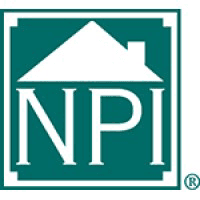Not sure if HomeVestors of America, Inc. is right for you?
Talk to a Franchise Advisor who can match you with your perfect franchise based on your goals, experience, and investment range.
Talk to an Expert
HomeVestors
How much does HomeVestors cost?
Initial Investment Range
$107,500 to $477,250
Franchise Fee
$42,500 to $85,000
The franchises offered are for the right to operate a business to buy, sell and rehabilitate residential and commercial properties and provide certain services to buyers and sellers.
Enjoy our partial free risk analysis below
Unlock the full risk analysis to access 9 more categories covering 100+ risks.
HomeVestors April 21, 2025 FDD Risk Analysis
Free FDD Library AI Analysis Date: July 16, 2025
DISCLAIMER: Not Legal Advice - For Informational Purposes Only. Consult With Qualified Franchise Professionals.
Franchisor Stability Risks
Start HereDisclosure of Franchisor's Financial Instability
High Risk
Explanation
The franchisor’s audited financial statements show a significant decline in financial performance. For the year ended December 31, 2024, net income was approximately $6.5 million, a sharp decrease from about $11.7 million in 2023 and $12 million in 2022. This substantial drop in profitability suggests potential challenges to the franchisor's financial stability, which could impact its ability to support franchisees and grow the brand effectively.
Potential Mitigations
- An accountant should thoroughly analyze the complete, audited financial statements, including all footnotes and the statement of cash flows, to assess the franchisor's stability.
- Discussing the reasons for the declining profitability directly with the franchisor's management could provide critical context.
- Your business advisor can help you evaluate if the franchisor has sufficient capital to meet its obligations to the franchise system.
High Franchisee Turnover
High Risk
Explanation
The FDD discloses an exceptionally high franchisee turnover rate. In a 'Special Risks' section, the franchisor states that 354 franchised outlets were terminated, not renewed, or ceased operations in the last three years. Item 20 tables confirm this, showing a net loss of 101 franchised outlets in 2024 alone. This level of churn is a critical indicator of potential systemic problems, such as franchisee unprofitability, dissatisfaction, or other significant operational challenges.
Potential Mitigations
- It is crucial to contact a significant number of former franchisees listed in Exhibit F-2 to understand their reasons for leaving the system.
- Your accountant should carefully analyze the turnover data in Item 20 across all three years to understand the specific trends in terminations, non-renewals, and other cessations.
- A franchise attorney can help you formulate precise questions for the franchisor regarding the high turnover rate.
Rapid System Growth
Low Risk
Explanation
The risk that a franchisor may be expanding too quickly, potentially straining its support systems, was not identified in the FDD. However, a business advisor can help you analyze the franchise growth tables in Item 20 to determine if the rate of new openings seems sustainable relative to the franchisor's size and resources.
Potential Mitigations
- To understand if the support infrastructure is robust, you should speak with franchisees who have been in the system for different lengths of time.
- A business advisor can help you evaluate whether the franchisor's growth seems controlled and sustainable.
- Review the franchisor's financial statements with your accountant to assess if they have the capital to support the existing system.
New/Unproven Franchise System
Low Risk
Explanation
This risk was not identified. HomeVestors of America, Inc. (HomeVestors) has been franchising since 1996 and has a large, established system. An unproven system presents higher risks because its business model, brand recognition, and support infrastructure have not been tested over time, which can lead to a greater chance of failure for new franchisees.
Potential Mitigations
- When evaluating any franchise, your business advisor should help you assess the franchisor's operational history and the maturity of its systems.
- It is wise to have your accountant review the financial statements to ensure the franchisor is not overly reliant on initial franchise fees for its income.
- Your attorney can help you understand the legal history and stability of the franchisor by reviewing Items 1, 3, and 4.
Possible Fad Business
Low Risk
Explanation
The risk of the business being a short-term fad was not identified. The business model of buying, renovating, and selling or renting residential properties is a long-standing segment of the real estate industry. While subject to market cycles, it is not typically considered a fad. A fad business carries the risk that consumer interest may disappear, leaving you with a worthless investment.
Potential Mitigations
- A business advisor can help you research the long-term stability and market trends of any industry you consider entering.
- Assessing a company's plans for innovation and adaptation with your attorney can provide insight into its long-term viability.
- Your accountant can help you analyze if a business model is resilient enough to withstand economic shifts.
Inexperienced Management
Low Risk
Explanation
This risk was not identified in the FDD. The executive team listed in Item 2 appears to have significant experience in relevant fields such as operations, franchise development, and technology. When considering a franchise, it is important to evaluate management's background, as inexperience can lead to poor strategic decisions, inadequate franchisee support, and a higher risk of system-wide problems.
Potential Mitigations
- A business advisor can help you research the backgrounds of the franchisor's key management team to assess their industry and franchising experience.
- Speaking with current franchisees is an effective way to gauge the quality of management and the support they provide.
- Your attorney can help you understand the implications of any recent management turnover.
Private Equity Ownership
Medium Risk
Explanation
HomeVestors’ ultimate parent is Bayview MSR Opportunity Master Fund, L.P., a private investment fund. This ownership structure may introduce risks, as private equity firms often have specific investment timelines and return expectations. Decisions could potentially prioritize short-term financial gains for investors over the long-term health of the franchise system and individual franchisee profitability. The franchise agreement can be assigned to a new owner without your consent.
Potential Mitigations
- It is important to discuss with your business advisor the potential impacts of private equity ownership on franchise systems.
- Inquiring with franchisees who have been in the system before and after the acquisition by the parent company can provide valuable insight.
- Your attorney should review any clauses related to the sale or assignment of the franchise system to new ownership.
Non-Disclosure of Parent Company
Low Risk
Explanation
This risk was not identified. The FDD discloses that HomeVestors' ultimate parent is Bayview MSR Opportunity Master Fund, L.P. However, the franchisor has provided its own audited consolidated financial statements in Item 21, as required. When a franchisor is a subsidiary, it's crucial that financials for the correct entity (and any guaranteeing parent) are provided to accurately assess risk.
Potential Mitigations
- Your accountant should always verify that the financial statements provided in Item 21 are for the actual franchisor entity you are contracting with.
- If a parent company guarantees the franchisor's performance, it is advisable to have your attorney confirm that the parent's financials are also included.
- A business advisor can help investigate the corporate structure to understand relationships between parent and subsidiary companies.
Predecessor History Issues
Low Risk
Explanation
This risk was not identified. HomeVestors states in Item 1 that it has no predecessors required to be disclosed. A predecessor is a company from which the franchisor acquired a major portion of its assets. A lack of transparency about a predecessor could hide a history of business failures, litigation, or other problems that might be relevant to your investment decision.
Potential Mitigations
- Your attorney should always carefully review Item 1 of the FDD to check for any disclosed predecessors.
- If a predecessor is mentioned, a business advisor can help you research its history and reputation.
- Asking long-term franchisees about their experience with any previous ownership can provide valuable historical context.
Pattern of Litigation
High Risk
Explanation
Item 3 discloses several pending lawsuits initiated by third parties and franchisees against HomeVestors. Allegations include fraud, vicarious liability for franchisee actions, and breach of contract. A settled matter also reveals a significant payment of $576,000 to a franchisee claimant. This pattern of litigation, particularly cases alleging fraud or asserting franchisor liability for franchisee conduct, suggests potential systemic issues and represents a significant legal risk for both the franchisor and prospective franchisees.
Potential Mitigations
- A thorough review of every litigation summary in Item 3 with your franchise attorney is essential to understand the nature and potential impact of the claims.
- It is advisable to ask the franchisor for more details about the pending lawsuits and their strategies for managing these legal challenges.
- Your attorney can help assess how these legal issues might affect the franchisor’s stability and your own potential liability as a franchisee.
Disclosure & Representation Risks
Example Risk: Franchisee Financial Obligations
Blue Risk
Explanation
This risk involves the financial obligations that a franchisee must meet, including initial fees, ongoing royalties, and other required payments. Understanding these obligations is crucial for long-term success.
Potential Mitigations
- Carefully review the Franchise Disclosure Document (FDD) and consult with a franchise attorney to fully understand all financial commitments before signing.
- Conduct regular risk assessments
- Implement monitoring and reporting systems
Unlock Full Risk Analysis
Purchase the complete risk review to see all 102 risks across all 10 categories.
Financial & Fee Risks
Example Risk: Franchisee Financial Obligations
Blue Risk
Explanation
This risk involves the financial obligations that a franchisee must meet, including initial fees, ongoing royalties, and other required payments. Understanding these obligations is crucial for long-term success.
Potential Mitigations
- Carefully review the Franchise Disclosure Document (FDD) and consult with a franchise attorney to fully understand all financial commitments before signing.
- Conduct regular risk assessments
- Implement monitoring and reporting systems
Unlock Full Risk Analysis
Purchase the complete risk review to see all 102 risks across all 10 categories.
Legal & Contract Risks
Example Risk: Franchisee Financial Obligations
Blue Risk
Explanation
This risk involves the financial obligations that a franchisee must meet, including initial fees, ongoing royalties, and other required payments. Understanding these obligations is crucial for long-term success.
Potential Mitigations
- Carefully review the Franchise Disclosure Document (FDD) and consult with a franchise attorney to fully understand all financial commitments before signing.
- Conduct regular risk assessments
- Implement monitoring and reporting systems
Unlock Full Risk Analysis
Purchase the complete risk review to see all 102 risks across all 10 categories.
Territory & Competition Risks
Example Risk: Franchisee Financial Obligations
Blue Risk
Explanation
This risk involves the financial obligations that a franchisee must meet, including initial fees, ongoing royalties, and other required payments. Understanding these obligations is crucial for long-term success.
Potential Mitigations
- Carefully review the Franchise Disclosure Document (FDD) and consult with a franchise attorney to fully understand all financial commitments before signing.
- Conduct regular risk assessments
- Implement monitoring and reporting systems
Unlock Full Risk Analysis
Purchase the complete risk review to see all 102 risks across all 10 categories.
Regulatory & Compliance Risks
Example Risk: Franchisee Financial Obligations
Blue Risk
Explanation
This risk involves the financial obligations that a franchisee must meet, including initial fees, ongoing royalties, and other required payments. Understanding these obligations is crucial for long-term success.
Potential Mitigations
- Carefully review the Franchise Disclosure Document (FDD) and consult with a franchise attorney to fully understand all financial commitments before signing.
- Conduct regular risk assessments
- Implement monitoring and reporting systems
Unlock Full Risk Analysis
Purchase the complete risk review to see all 102 risks across all 10 categories.
Franchisor Support Risks
Example Risk: Franchisee Financial Obligations
Blue Risk
Explanation
This risk involves the financial obligations that a franchisee must meet, including initial fees, ongoing royalties, and other required payments. Understanding these obligations is crucial for long-term success.
Potential Mitigations
- Carefully review the Franchise Disclosure Document (FDD) and consult with a franchise attorney to fully understand all financial commitments before signing.
- Conduct regular risk assessments
- Implement monitoring and reporting systems
Unlock Full Risk Analysis
Purchase the complete risk review to see all 102 risks across all 10 categories.
Operational Control Risks
Example Risk: Franchisee Financial Obligations
Blue Risk
Explanation
This risk involves the financial obligations that a franchisee must meet, including initial fees, ongoing royalties, and other required payments. Understanding these obligations is crucial for long-term success.
Potential Mitigations
- Carefully review the Franchise Disclosure Document (FDD) and consult with a franchise attorney to fully understand all financial commitments before signing.
- Conduct regular risk assessments
- Implement monitoring and reporting systems
Unlock Full Risk Analysis
Purchase the complete risk review to see all 102 risks across all 10 categories.
Term & Exit Risks
Example Risk: Franchisee Financial Obligations
Blue Risk
Explanation
This risk involves the financial obligations that a franchisee must meet, including initial fees, ongoing royalties, and other required payments. Understanding these obligations is crucial for long-term success.
Potential Mitigations
- Carefully review the Franchise Disclosure Document (FDD) and consult with a franchise attorney to fully understand all financial commitments before signing.
- Conduct regular risk assessments
- Implement monitoring and reporting systems
Unlock Full Risk Analysis
Purchase the complete risk review to see all 102 risks across all 10 categories.
Miscellaneous Risks
Example Risk: Franchisee Financial Obligations
Blue Risk
Explanation
This risk involves the financial obligations that a franchisee must meet, including initial fees, ongoing royalties, and other required payments. Understanding these obligations is crucial for long-term success.
Potential Mitigations
- Carefully review the Franchise Disclosure Document (FDD) and consult with a franchise attorney to fully understand all financial commitments before signing.
- Conduct regular risk assessments
- Implement monitoring and reporting systems
Unlock Full Risk Analysis
Purchase the complete risk review to see all 102 risks across all 10 categories.









